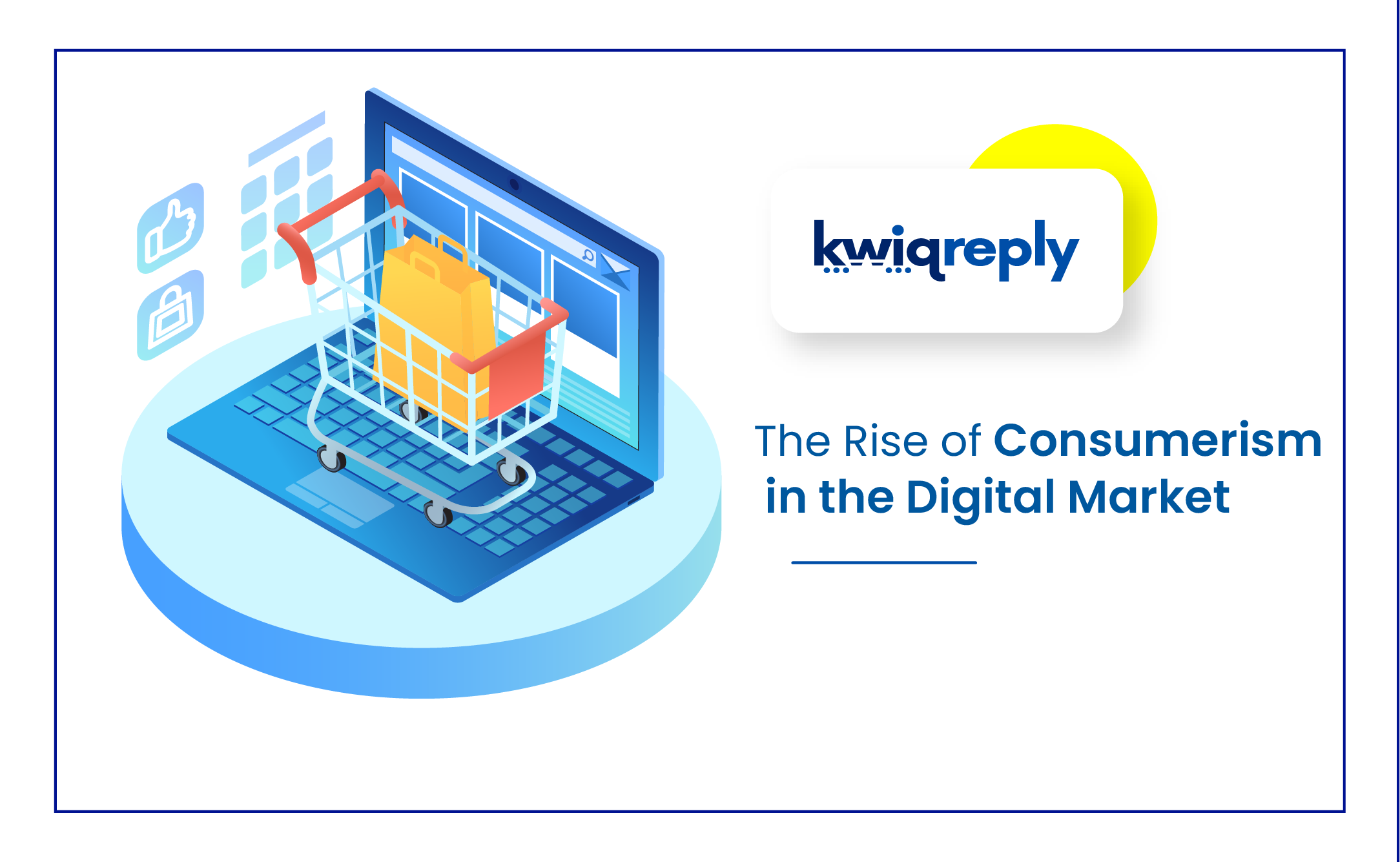
The Rise of Consumerism in the Digital Market
Understanding the consumers perspective
From the convenience of smartphones or laptops for making purchases to scrolling on apps in lieu of window shopping, the digital market has become an integral part of our daily lives. We have the option to explore a vast array of products and services, making purchases with just a few clicks. The digital marketplace has revolutionized the way we shop, fanning the flame of consumerism and leading to it becoming more prevalent in our times of consumerism. This blog will delve into the factors contributing to the rise of consumerism in the digital market and its impact on society.
TL;DR
- The convenience of the digital market has increased the accessibility of online shopping, increasing its prevalence in the world.
- The abundance of choices not limited by a physical space and inventory has let online retailers capture a great deal of the market share with competitive pricing driving more customers towards online retailers
- With user data available through marketing and advertising, online retailers can tailor their messaging specifically for each consumer increasing their engagement and potential to purchase
- The rise of social media has supplemented this growth, building social trust, and driving trends through influencers and product endorsements
- With the prevalence of the internet in our modern world E-commerce and consumerism have become intrinsically tied together and a great part of this can be owed to the set-up of digital payment systems
- The psychological factors driving consumerism are:
- Hedonic motivation through a desire for sensory stimulation or pleasure from a purchase
- Social comparison due to peers sharing their lifestyles and purchases on social media
- The fear of missing out (FOMO) or a feeling of social isolation from not engaging in the same purchasing behavior as their peers
- The nudges implemented by companies that create a sense of urgency or delayed gratification for customers
- Instant gratification is a huge motivating factor behind purchasing decisions as it prevents people from making fully informed decisions. This can be mitigated using consumer education and awareness programs
- Consumerism has led to several positive changes such as economic growth and greater access to resources but has influenced a shift towards material possessions and resulted in environmental damage through waste generation and carbon emissions
Sign up for the WhatsApp Business API with kwiqreply today and boost your business communication!
Convenience and Accessibility
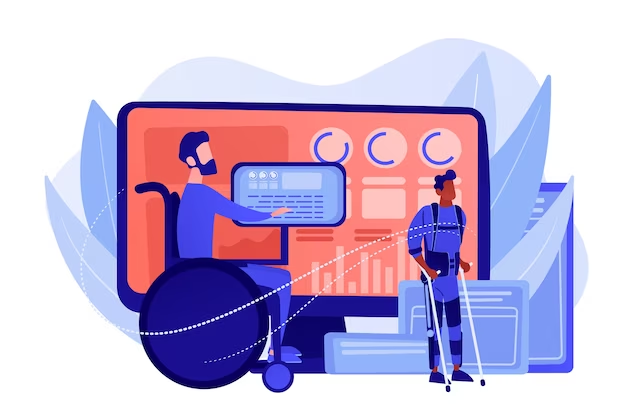
One of the primary drivers behind the rise of consumerism in the digital market is its unparalleled convenience. With a myriad of online platforms and marketplaces, consumers can shop from the comfort of their homes, without having to expend time or effort. Their 24/7 availability eliminates the restrictions of traditional retail hours, enabling people to purchase at their convenience. The rise of mobile commerce has further amplified accessibility, allowing consumers to shop on the go, anytime and anywhere.
Wider Product Selection and Competitive Pricing
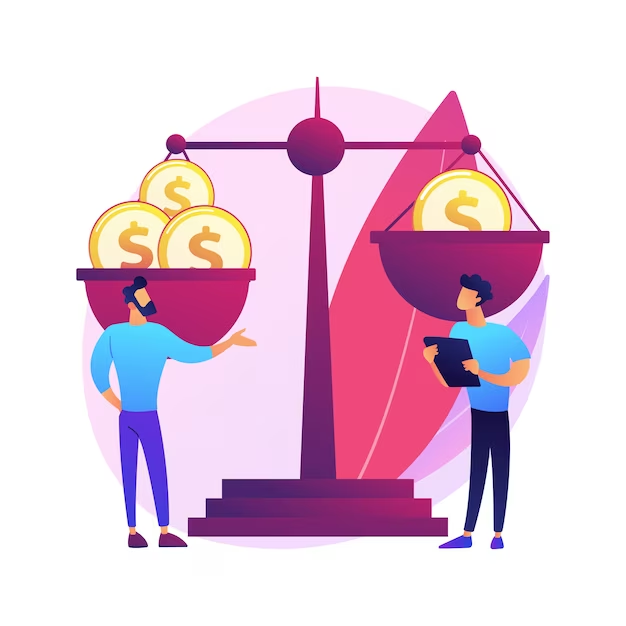
The digital market provides consumers with an astonishing variety of products and services. Unlike brick-and-mortar stores limited by physical space, online retailers can showcase an extensive inventory. This vast selection empowers consumers to compare products, read reviews, and make informed decisions. Additionally, the digital market fosters intense competition, pushing businesses to offer competitive prices and enticing discounts. This abundance of choices and attractive pricing motivates consumers to engage in more frequent and impulsive purchases.
Personalization and Targeted Marketing

The digital market has revolutionized advertising and marketing strategies. Through advanced data analytics and tracking tools, businesses can collect information about consumers' preferences, purchase history, and online behavior. Armed with this data, they can tailor the shopping experience for the consumer. They can make recommendations and targeted advertisements that are meant to appeal specifically to the consumer in question. This personalized approach appeals to consumers, making them feel seen and valued, thereby increasing their engagement and propensity for purchasing.
Social Media

Social media platforms have also transformed into virtual marketplaces themselves, contributing to the rise of consumerism. The ability to share experiences, reviews, and recommendations has transformed how consumers interact with brands and make purchase decisions. Influencers and celebrities on platforms like Instagram and YouTube wield significant power in this regard, shaping consumer preferences and driving trends. The viral nature of social media amplifies the reach of product endorsements, prompting consumers to purchase products they were previously unaware of.
E-commerce and Digital Payment Systems
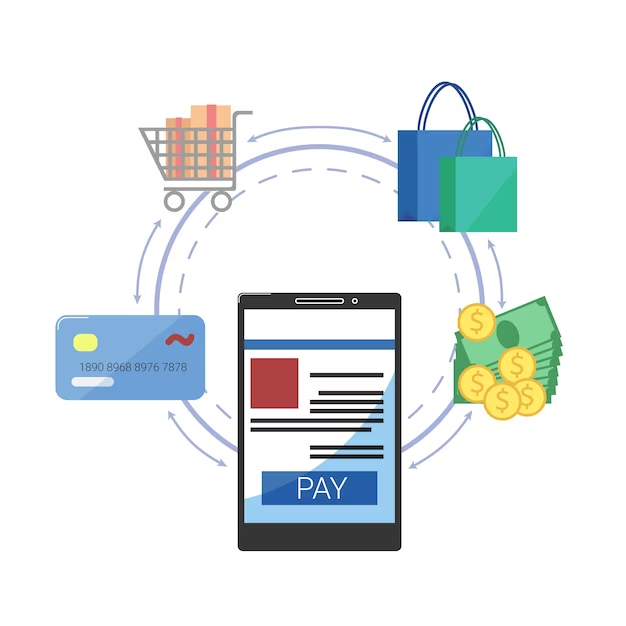
The growth of consumerism has been hand in hand with the growth of e-commerce. Online marketplaces have redefined the shopping landscape, catering to diverse consumer needs. The integration of secure digital payment systems has further fueled this growth. One-click payments and the trust instilled in secure transactions have made online shopping extremely accessible. This degree of reliability and access has encouraged consumer spending to skyrocket in the last few years, evident from the success of marketplaces such as Amazon, Alibaba, and eBay.
Psychological Factors and Instant Gratification
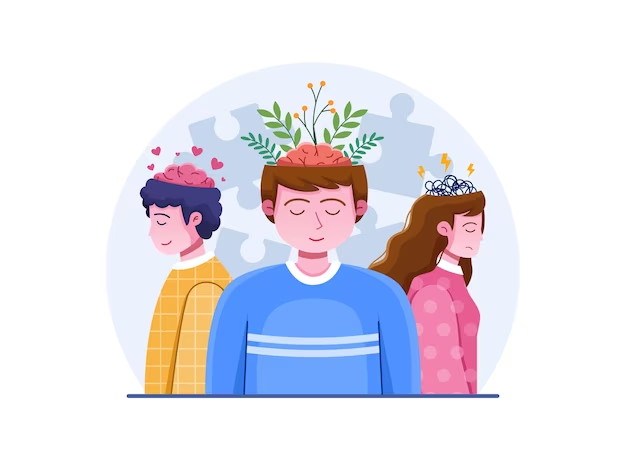
Psychological factors play a huge role in the current prevalence of consumerism in the digital market. The nature and process of online shopping, from the ability to add items to a virtual cart, to receiving confirmation for a purchase contributes to this. It instills a sense of satisfaction and accomplishment whenever a purchase is made and with same day deliveries these feelings get amplified more.
The instant gratification of online purchases along with the social validation received on social media platforms also plays a significant role in this. Since there a number of psychological aspects involved in consumerism we will be elaborating on them here :
Psychological Factors Driving Consumerism
Psychological factors play a huge role in the current prevalence of consumerism in the digital market. The nature and process of online shopping, from the ability to add items to a virtual cart, to receiving confirmation for a purchase contributes to this. It instills a sense of satisfaction and accomplishment whenever a purchase is made and with same day deliveries these feelings get amplified more.
The instant gratification of online purchases along with the social validation received on social media platforms also plays a significant role in this. Since there a number of psychological aspects involved in consumerism we will be elaborating on them here :
Psychological Factors Driving Consumerism
Hedonic Motivations
Hedonic motivations play a significant role in driving consumerism in the digital market. The desire for sensory stimulation and pleasure drives individuals to engage in online shopping. The ease of browsing through a wide range of products, receiving personal recommendations, and the anticipation of acquiring your purchase contribute to the hedonic appeal of digital consumerism
Social Comparison
Social comparison is facilitated by social media platforms and online reviews, and is a key player in driving consumerism in the digital market. Many individuals advertise their personal lives on social media which includes the goods and services they consume. Individuals are driven by social pressure to keep up with the consumption patterns and lifestyles of others. This leads to the desire for new products and constant upgrades. The visibility of others' experiences and possessions creates a basis for consumers to compare their lifestyles. If there is any gap or desire caused by viewing others' lives, consumers are driven to fill it leading to more purchases, a classic example of consumer behavior.
Fear of Missing Out
The fear of missing out (FOMO) is a psychological phenomenon related to a feeling of social isolation that arises from the perception that one has of being excluded or being overlooked. This can pertain to a variety of situations such as social gatherings, products, events, opportunities, trends, or even limited-time offers. Social media platforms contribute to this by creating a sense of urgency and scarcity, making individuals fear that they might miss out on something regardless of whether they would have been able to experience it in the first place. This constant exposure to others' experiences and the fear of being left behind drive individuals to engage in impulsive online shopping.
Emotional Regulation
Digital consumerism also serves a role as a mechanism for emotional regulation. Online shopping provides individuals with a temporary escape or distraction from negative emotions, stress, or boredom. Engaging in the process of browsing, selecting, and purchasing products offers a sense of control, satisfaction, and relief, providing emotional comfort. However, due to the short term nature of the relief obtained consumers are rarely able to deal with the core of the problem leading to continued purchases.
Implementing Nudges and Decision Prompts
Businesses also play a role in influencing psychological factors by implementing nudges and decision prompts. Providing consumers with purchase reminders prompting impulsive purchases, and offering compensation for a delay in gratification are all ways in which companies convince people to buy. These nudges succeed in mobilising consumers who were on the fence about making purchases leading to more of them.
Instant Gratification in Consumer Decision-Making
The Power of Instant Gratification
Instant gratification refers to the immediate satisfaction or pleasure derived from acquiring goods or experiences without delay. The ability to make purchases with a few clicks is what makes online shopping appealing. The quick access to desired products and the immediate pleasure associated with the act of shopping contribute to impulsive buying.
Implications for Consumer Decision-Making
Instant gratification has significant implications for a consumer's decision-making processes. The desire for immediate satisfaction can override rational considerations, leading individuals to make impulsive and irrational purchase decisions. This can deter individuals from engaging in thorough product evaluations, comparing alternatives, or considering long-term consequences.
Consumer Education and Awareness
Consumer education also impacts psychological factors on consumerism in the digital market. Generally, a lack of good consumer education or awareness leads to consumers tending towards instant gratification. Psychological influences and the strategies employed by marketers prevent individuals from making more informed choices, unable to resist their urges. If consumers are educated on the same, they can develop critical thinking skills, media literacy, and the ability to evaluate a product rationally.
Impact on Society
The rise of consumerism in the digital market has both positive and negative consequences for society. On the positive side, it has spurred economic growth, driving employment opportunities in e-commerce, logistics, and technology sectors. The convenience of online shopping has also proven beneficial for individuals with limited mobility or those residing in remote areas. People now have access to more resources today than we ever have in history. However, consumerism's dark side arises from the constant pursuit of material possessions that can lead to financial burdens and a strain on your well-being. It also includes environmental concerns due to increased packaging waste and carbon emissions from deliveries.
To sum up,
The rise of consumerism in the digital market has ushered in a new era of shopping trends, transforming the way we shop and engage with brands. Online platforms have fueled the consumerist mindset with convenience, accessibility, and a wide array of choices. Social media and its related psychological factors have further solidified this paradigm shift. While the impact of digital consumerism on society is multifaceted, understanding its drivers and consequences can help navigate the evolving digital marketplace and make purchases more sensibly.
Click here to book a free demo and let us show you how you can do more business with WhatsApp.
Read more blogs like this -